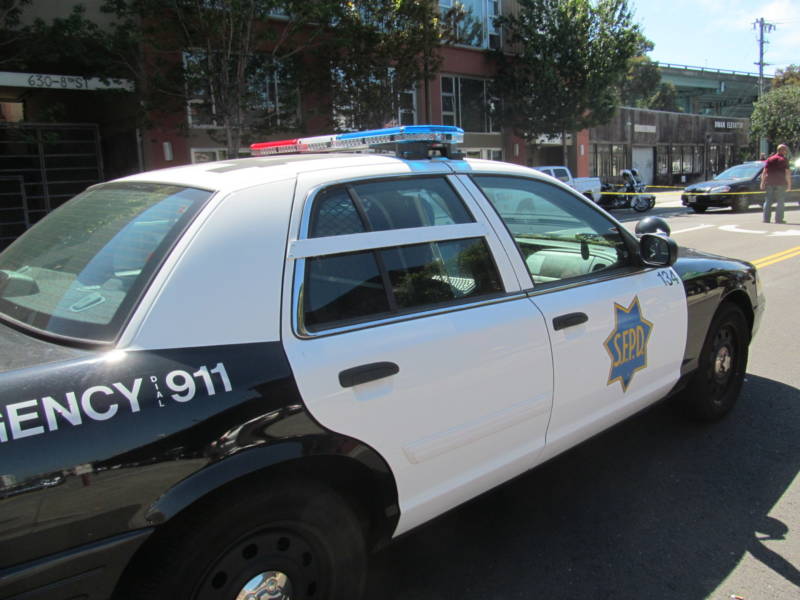In San Francisco and elsewhere, as many as half of fatal police shootings kill a person in psychiatric crisis. The ruling requiring police to keep mental disabilities in mind applies to the entire West Coast plus Arizona, Nevada, Idaho, Montana, Alaska and Hawaii.
"It’s a milestone for people who have disabilities and for officers who now really must think about their actions and think about the consequences of what they do," Nisenbaum said. "We have so many cases where officers simply rush in and they give no thought to what’s happening with the person."
But San Francisco appealed to the U.S. Supreme Court. Disability advocates worried the appeal would endanger the 9th Circuit's application of the ADA to police encounters.
But in what former Supreme Court Justice Antonin Scalia called a "bait-and-switch," San Francisco dropped its opposition to the ADA's application by the time its attorneys argued the case before the High Court, so the 9th Circuit's ruling remained in place.
About a year and a half later, the parties again stood in Judge Breyer's courtroom to present their settlement. From the audience, Teresa Sheehan spoke.
"Objection your honor," she said arguing that she didn't need a guardian. Breyer invited her to join her sister, Frances Sheehan, before the court.
"It is apparent to the court, which has lived with this case for some time -- not the same as you have -- but from a humanitarian point of view, it cries out for resolution," Breyer said. "I'm going to approve the settlement."
He explained that he was simply appointing Sheehan's sister guardian over the settlement and not other parts of her Sheehan's life. All parties agreed.
"Teresa had her day in court, just what she wanted," Frances Sheehan said after the hearing, adding that she was thankful for Breyer's compassion.
She said she's hopeful the settlement will allow her sister to move out of the single-resident-occupancy room where she's been living and into a more supportive environment.
"Her goal was to be able to have a better living situation," Frances Sheehan said. "She can look forward to a life that has been cut short for the last eight years while we’ve been in litigation with the city, so I think it was a win-win for everyone."
The city doesn't plan to pay the settlement; the insurance provider for the supportive housing company Sheehan was living in when she was shot is footing the bill while it heads into its own dispute with San Francisco over that liability.
There's been a lot of changes to how SFPD officers handle these kinds of encounters since Sheehan's shooting. The department has implemented Crisis Intervention Training -- a program to teach officers how to avoid violent outcomes with people in psychiatric crisis. A new program is pairing social workers with officers on some calls, and the department was recently recognized for developing a training video on de-escalating encounters with autistic people.
As for Teresa Sheehan, she's not totally aware of her impact on the law and policing policy, according to her sister.
"She did see in the papers here in San Francisco that she did go to the Supreme Court, the case, and she bought two newspapers and asked my sister Patricia to hold on to them for historical purposes," Frances Sheehan said. "We later would like to show Teresa a summary of what this has impacted. She’s a brilliant woman. She’s bright and smart. But I think it’s at the right time when this has kind of settled down, and she’s in a better place to live and she can have some of those services that we feel she so badly needs -- get her on track with some things and then we can show her a little history of what’s happened."
